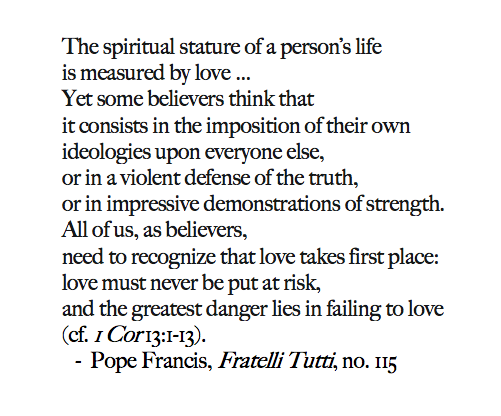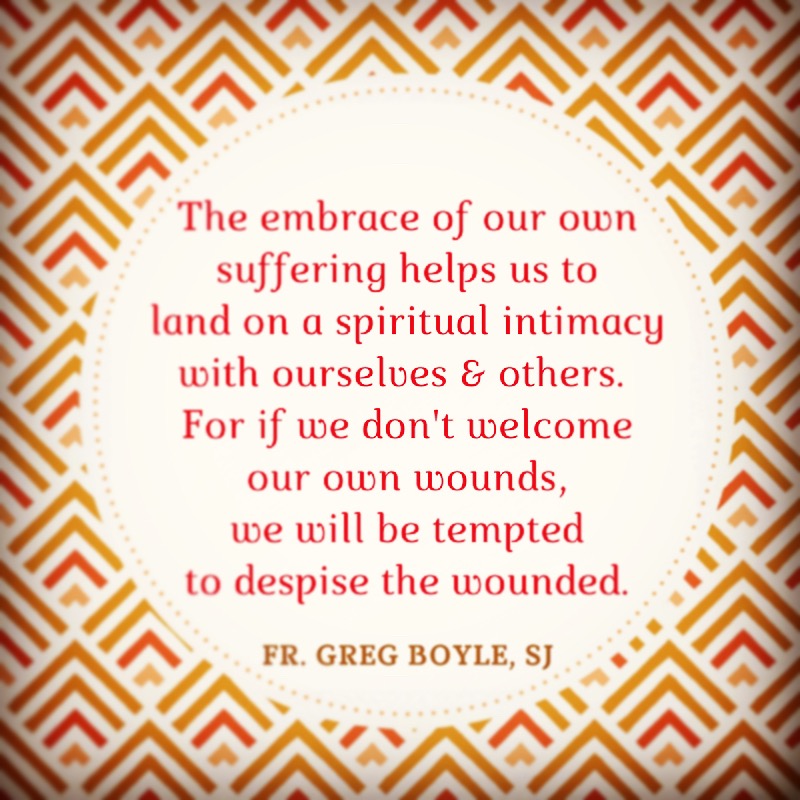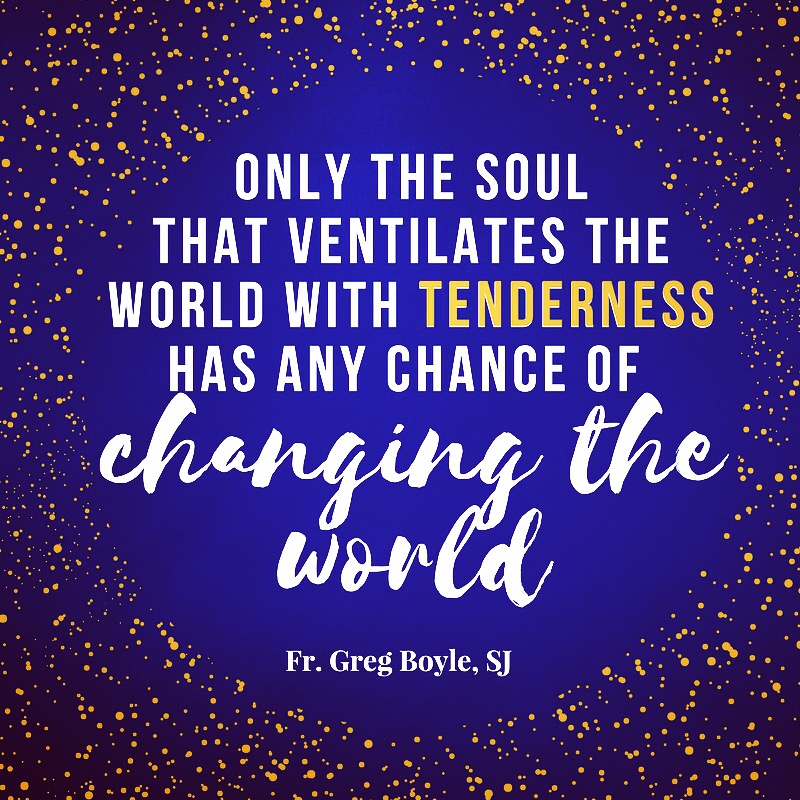
In class this week we read & discussed Genesis 1. I asked my students what it meant to them to see themselves & others as made in the 'image and likeness' of God. All the students who spoke up said: it makes no difference at all. That's never happened in my classroom before.
As I've been reflecting on this conversation, I continue to be stunned. Usually, in the face of so much depersonalization in our culture (so many ways to feel like we fail or don't measure up), students find comfort in this inherent dignity & feel challenged to honor it in others
In fact, I usually ask my students to write "very good" with their pens on the palm of their hand to remind them of their innate goodness, something to see over the day.
In the past, students have told me later how much they needed this reminder.
But this group was nonplussed.
In the past, students have told me later how much they needed this reminder.
But this group was nonplussed.
In listening to my students, it's clear that for them "God" has been co-opted by the powerful, the corrupt, the hypocritical, the judgmental, the intolerant. Their view of God isn't Holy Mystery, but the one who's distant at best and constantly fault-finding at worst.
For many of my students, religion has been an experience of blame or shame. They have seen it primarily used to measure who's worthy or unworthy, whose lives count, matter, and belong -- and whose don't. To say they are turned off is an understatement.
I know @kayaoakes and others have been writing about this for years, but this was the first time the *majority* of students (those who spoke up), were totally disillusioned by theological anthropology. It's become tainted by judgment, intolerance, exclusion, and abuse/cover-up.
I know that for many students, the church has little to no credibility or authority because of many examples of wounding people (& covering it up), to say nothing of the way many clergy are far too cozy with political leaders who are cruel, corrupt, incompetent, and manipulative.
I am angry and sad. Jesus came to extend God's mercy to all and to reveal the violence of oppressive beliefs, practices, and policies. Jesus was killed because of who he associated with (the unworthy) and yet our church too often cares more about purity of doctrine than mercy. 

But above all, it makes me long for my students to experience God-who-is-mercy (Exodus 34:6-7). I appreciate #PopeFrancis' call to build the "revolution of tenderness" (Evangelii Gaudium, no. 88). But unless/until we start practicing tenderness, the church won't be credible. 

And our students won't have much use for theology, which may keep them from a relationship with Holy Mystery and Ultimate Meaning. The contempt they see in so many religious people is making them run from our churches, which means they're also being deprived the Sacraments. 

All of this breaks my heart. I know religious disaffiliation is rising and I've heard students say they find religion useless, but this is the first it felt like a consensus for my students. I know it's still only anecdotal, but I can't help but feel like we've failed them. 

I don't mean to sound like I've given up hope; I haven't.
We still have a long way to go to live like the truth is true: each and every person we meet is God's reflection and representative. That can and should change the way we see others—and ourselves. And how we speak & act.
We still have a long way to go to live like the truth is true: each and every person we meet is God's reflection and representative. That can and should change the way we see others—and ourselves. And how we speak & act.
I will add that there's a lot of the semester left. I intentionally end our time together with @FrGregBoyle's _Barking to the Choir_. His wisdom about wounds, tenderness, and kinship is so moving (and in _Tattoos on the Heart_). I'm hopeful this will reach them & stay with them: 



• • •
Missing some Tweet in this thread? You can try to
force a refresh




